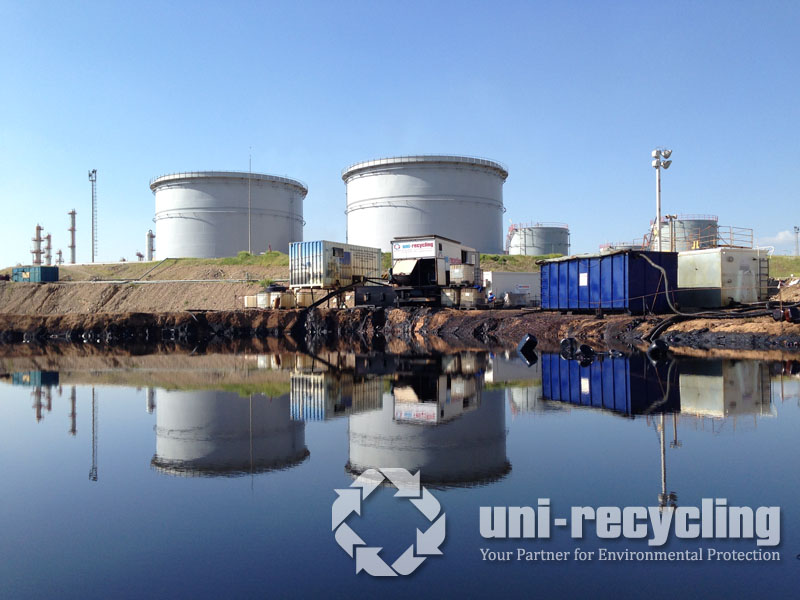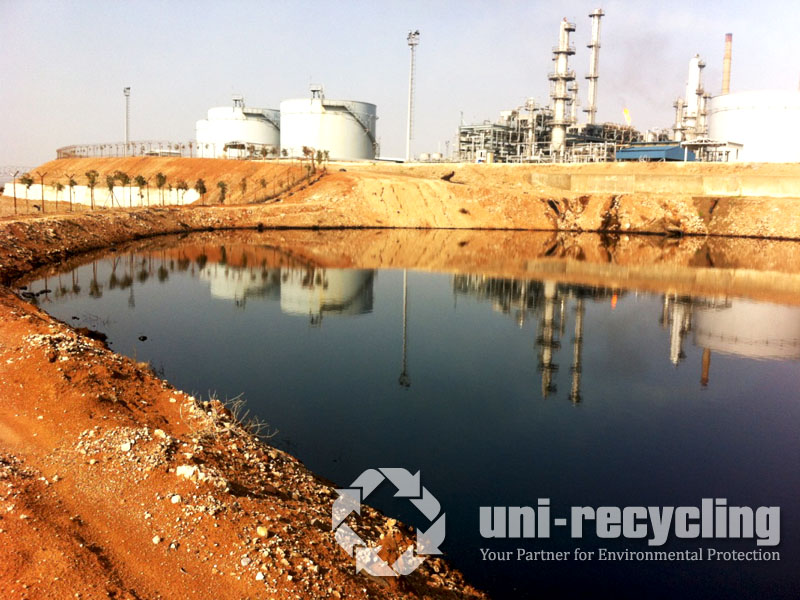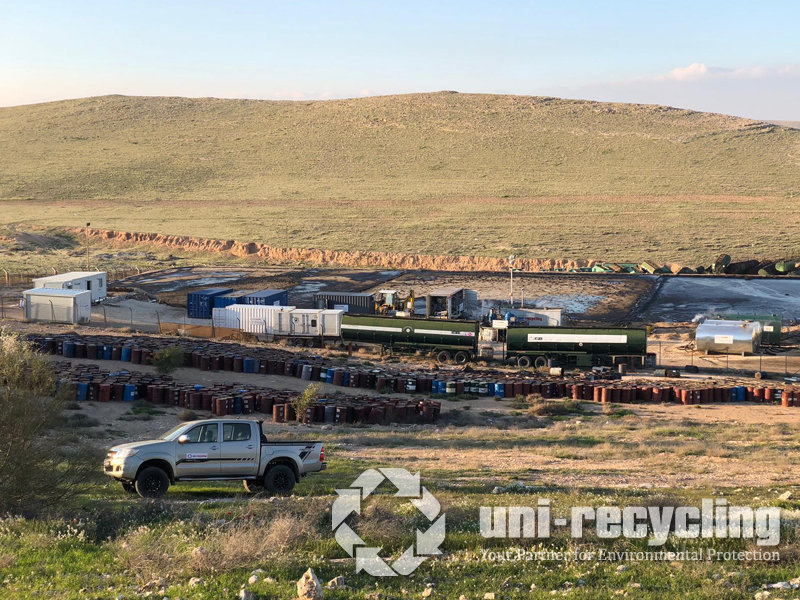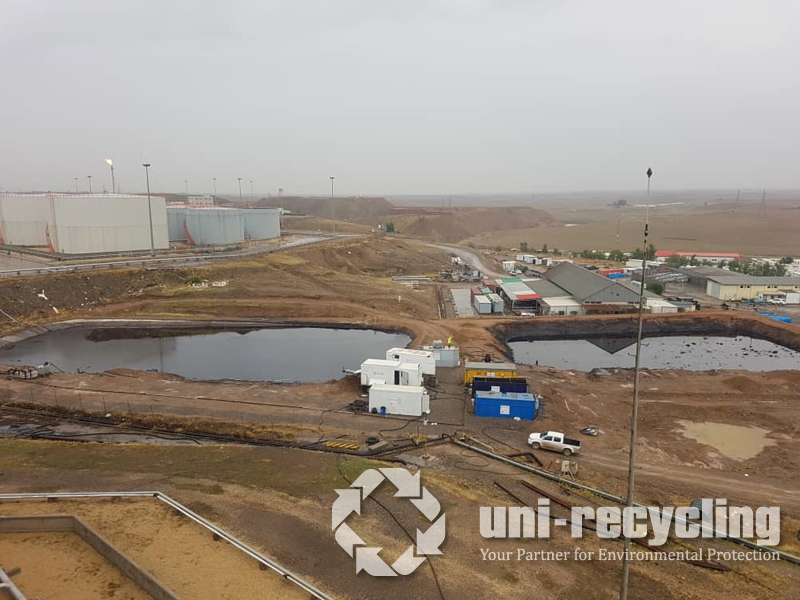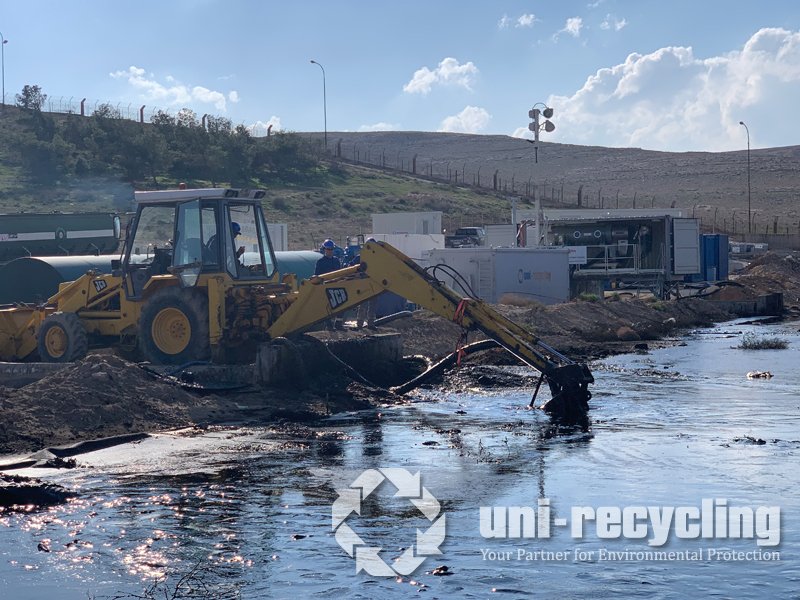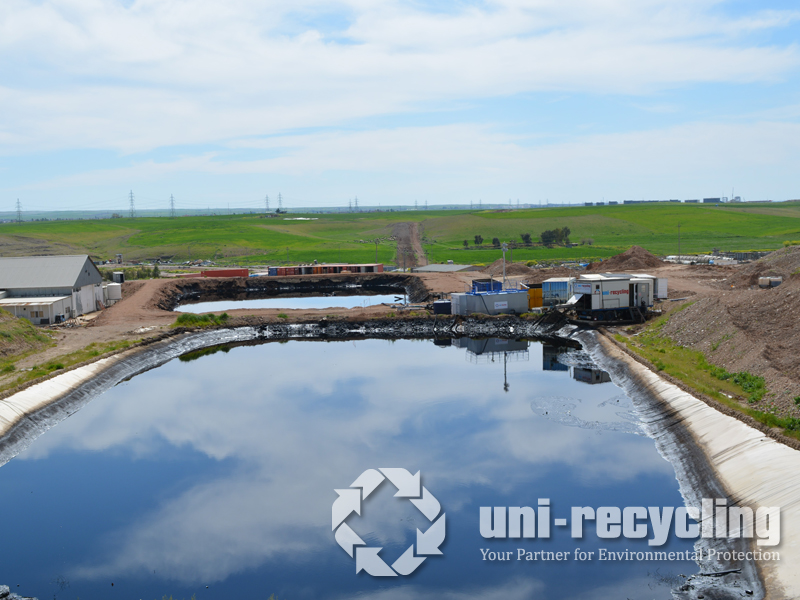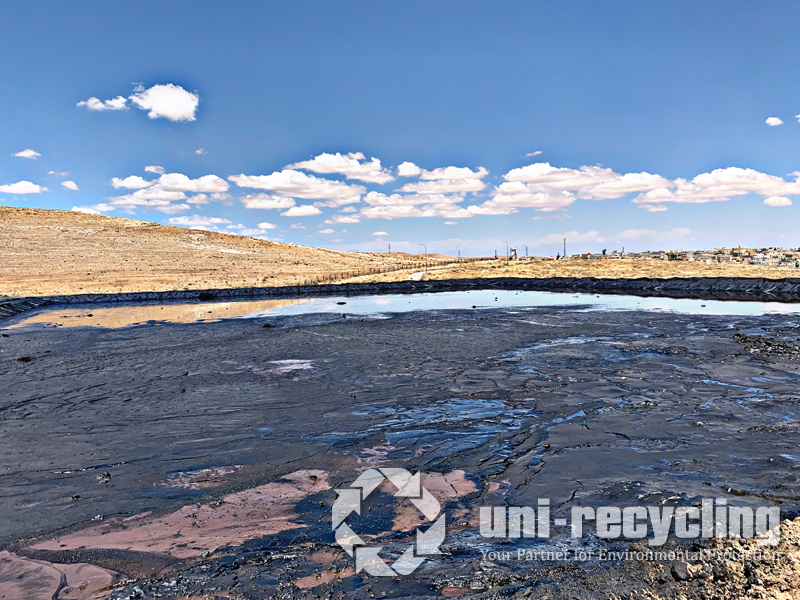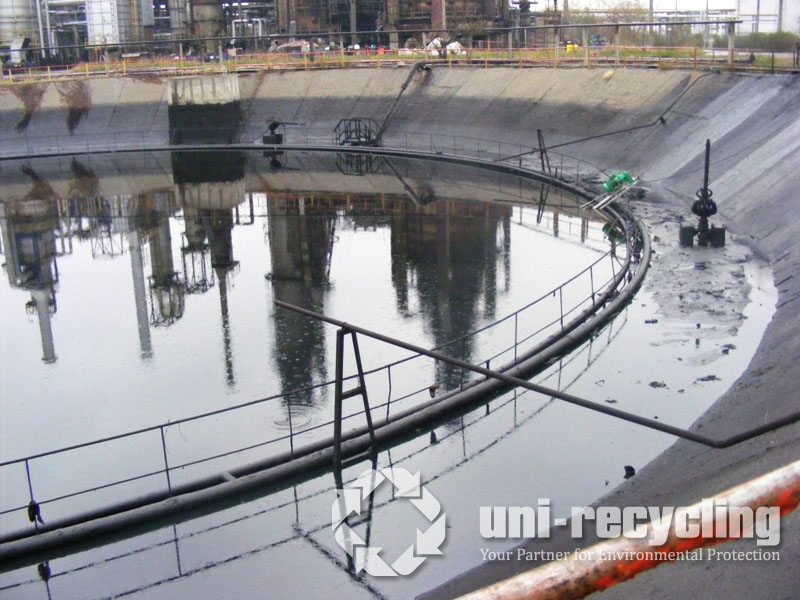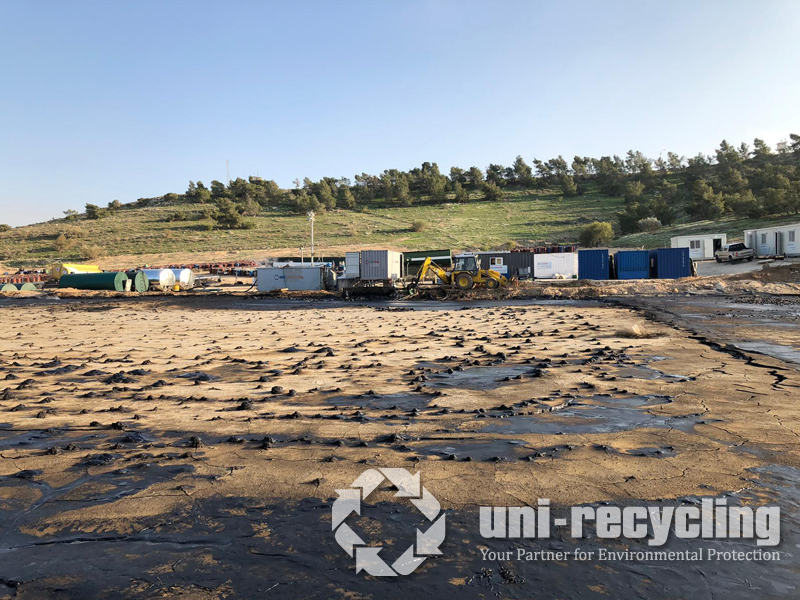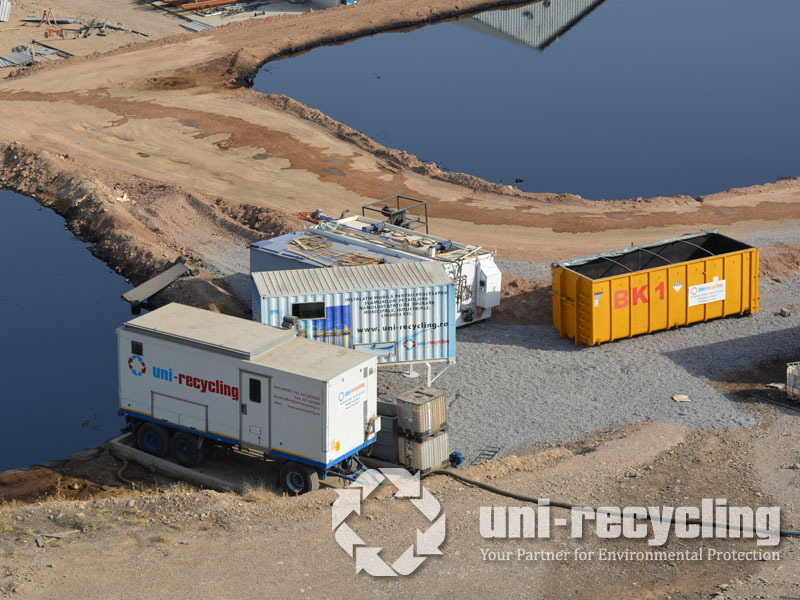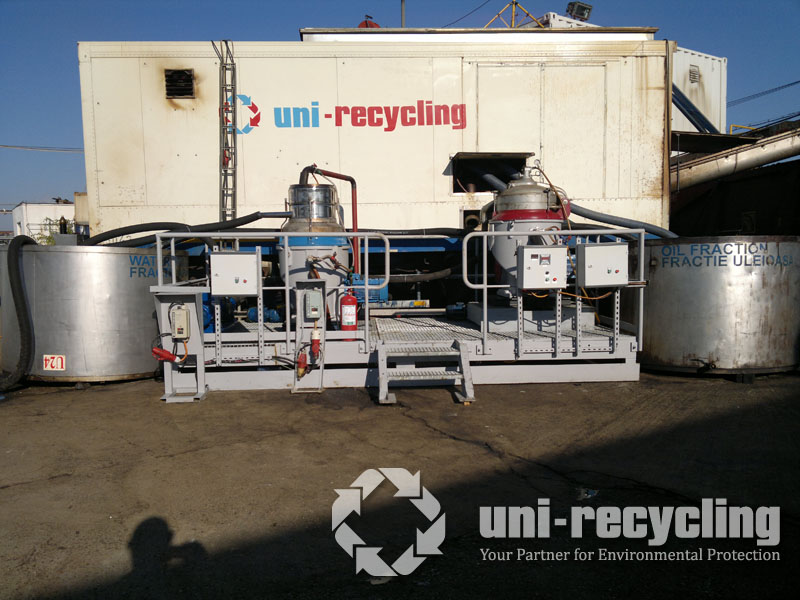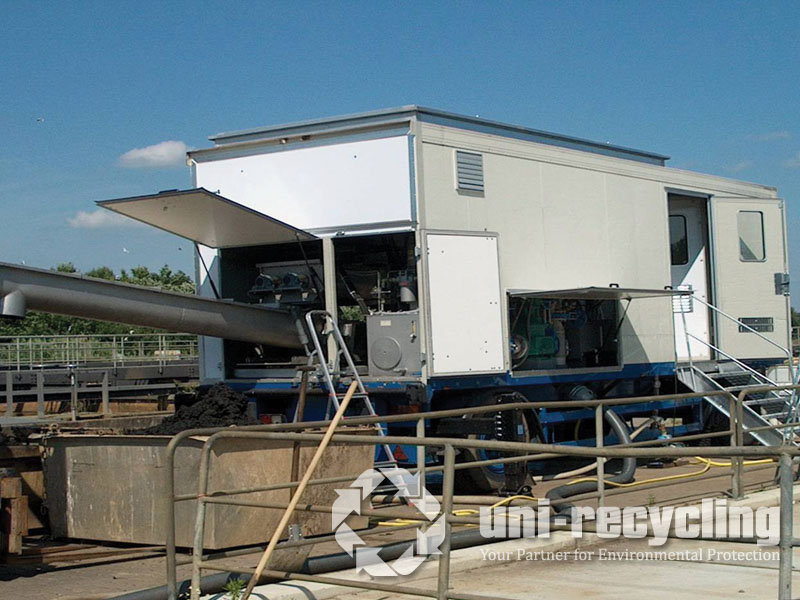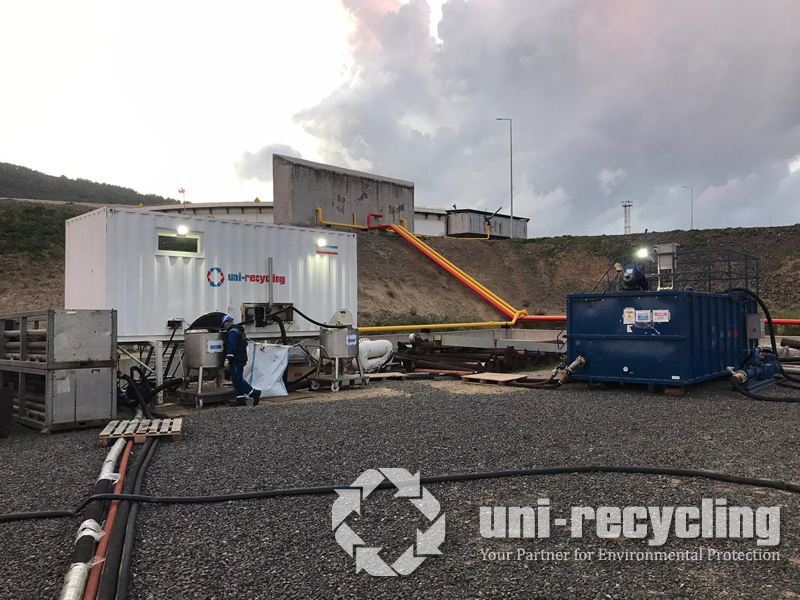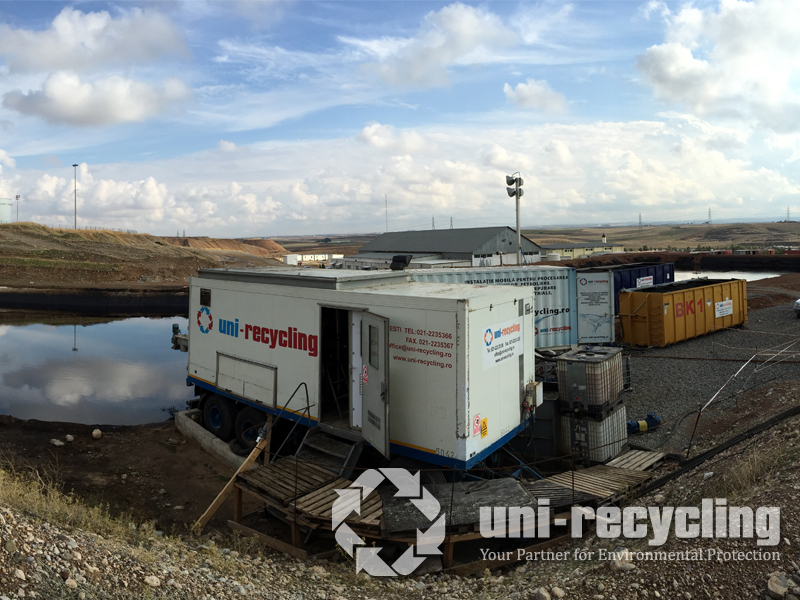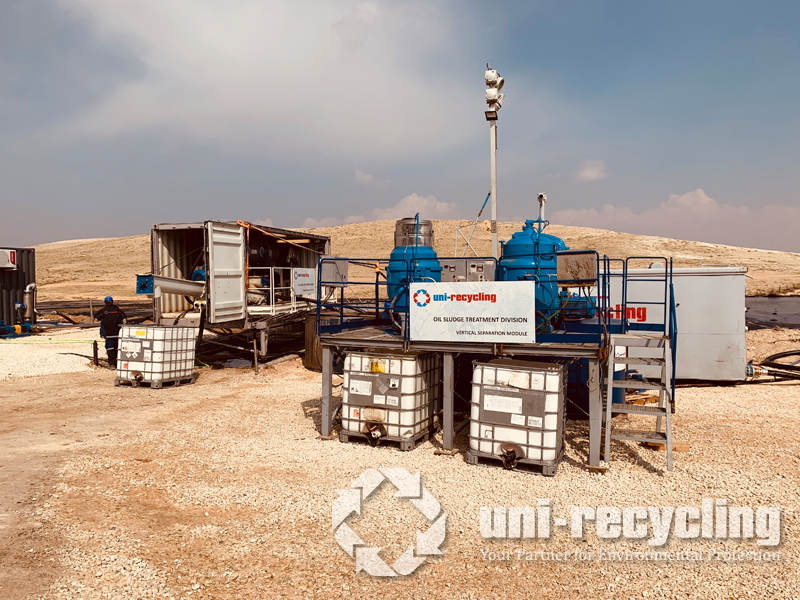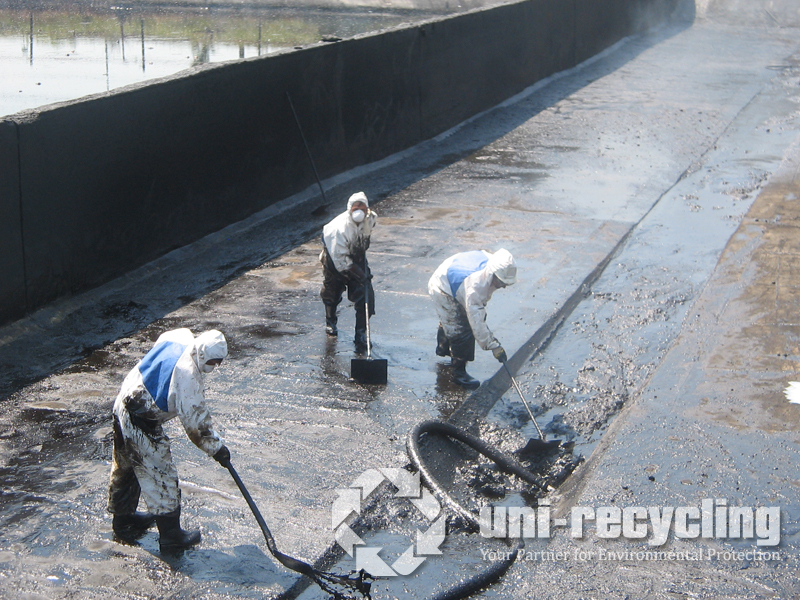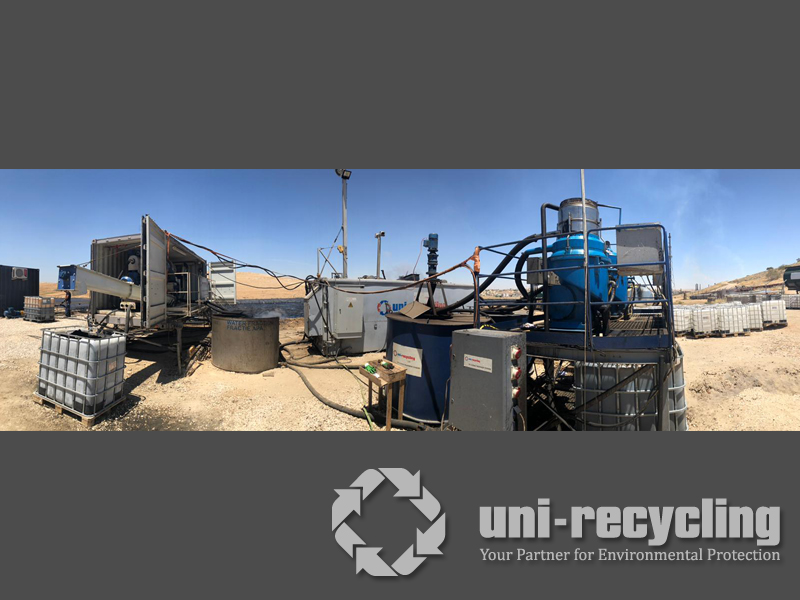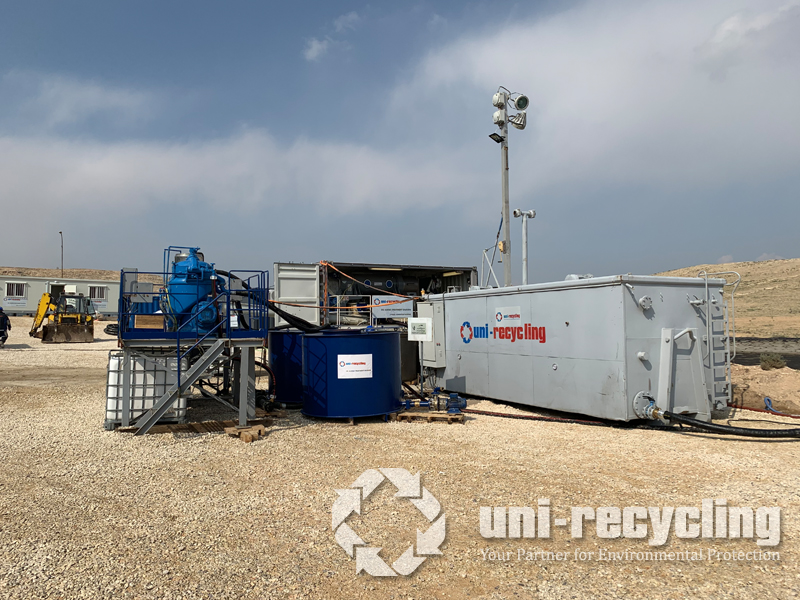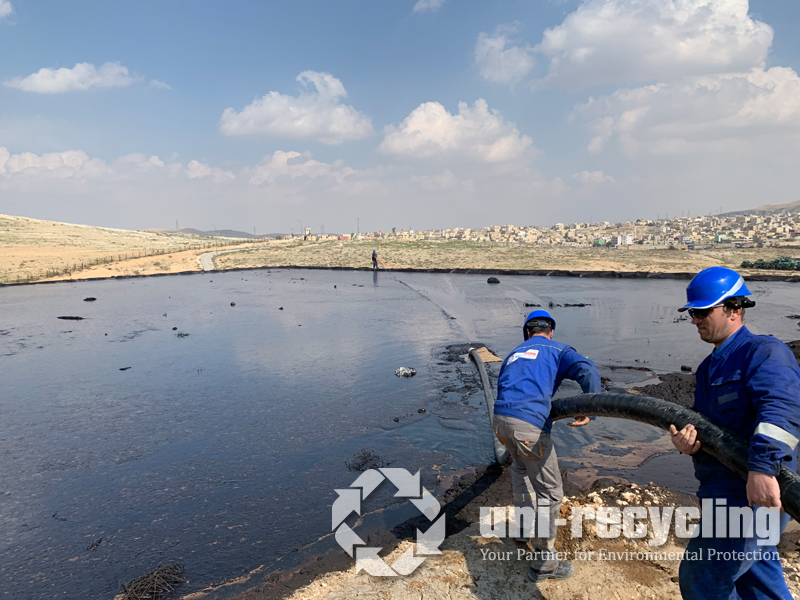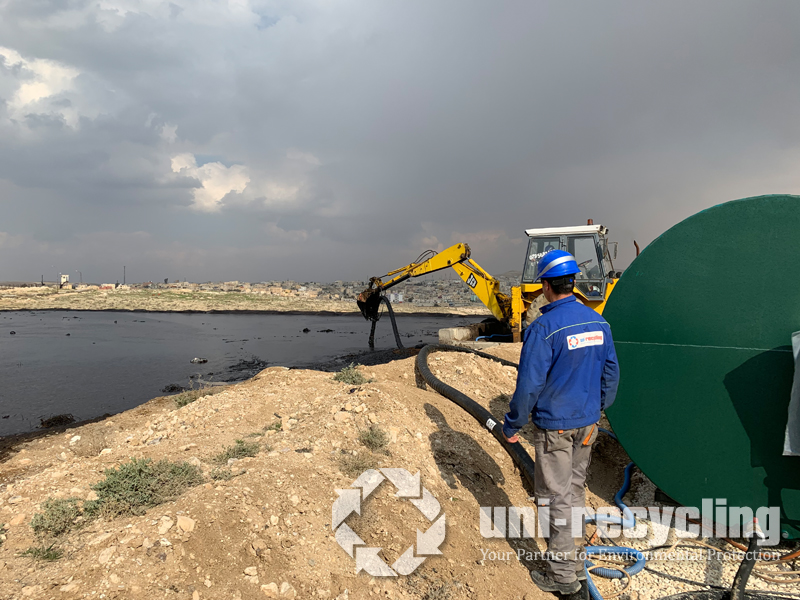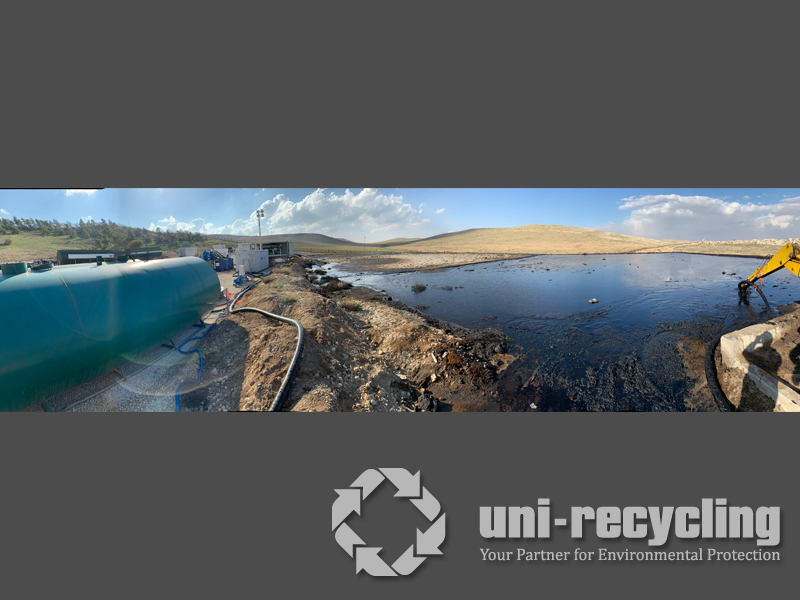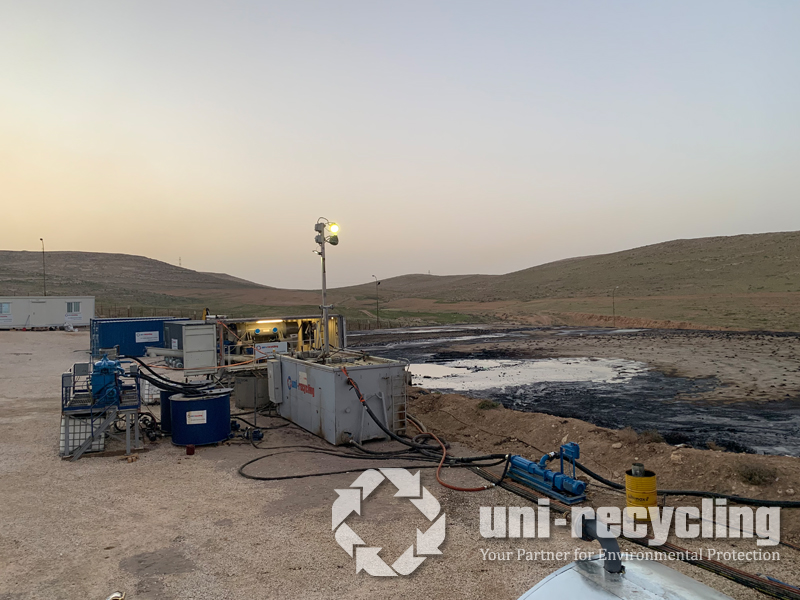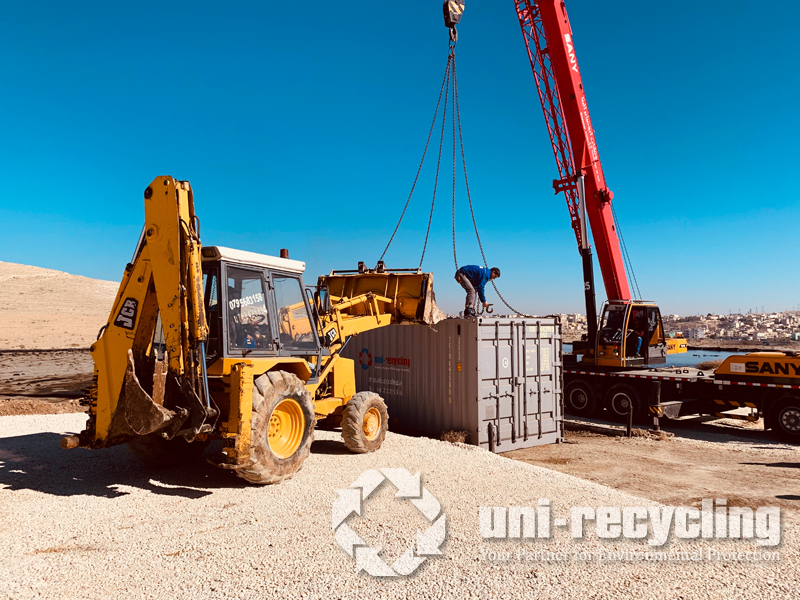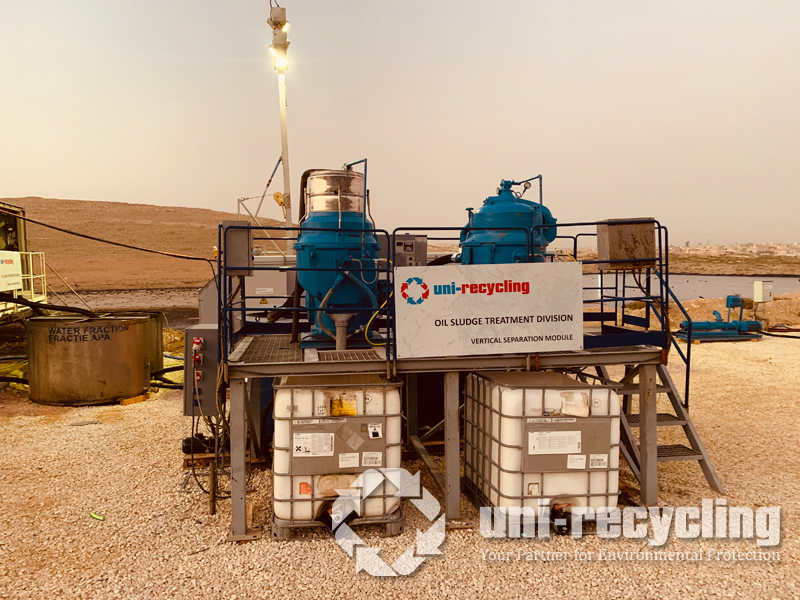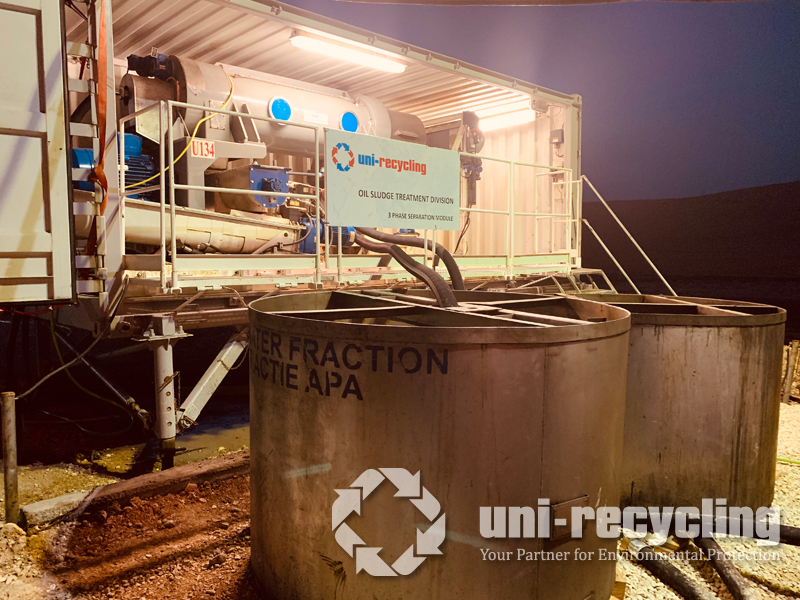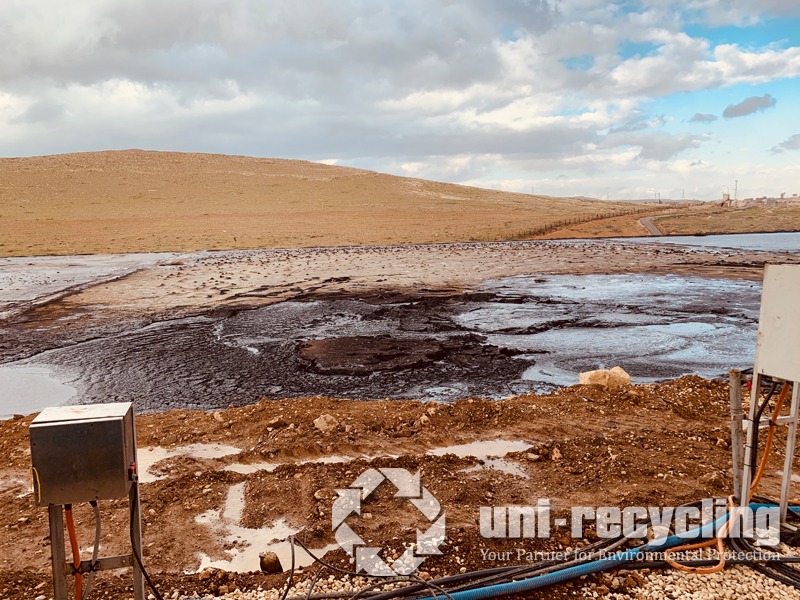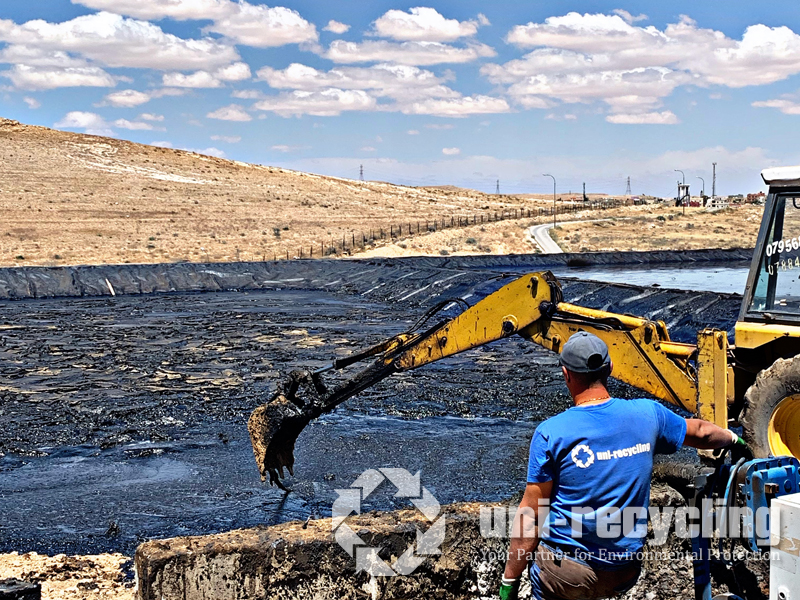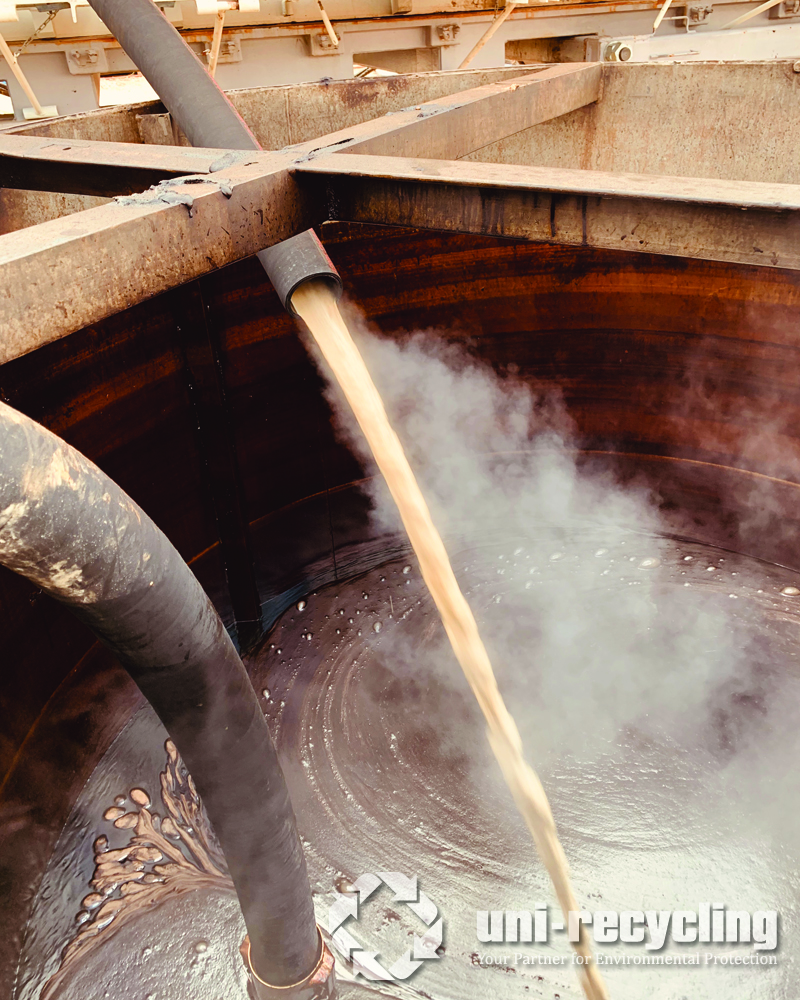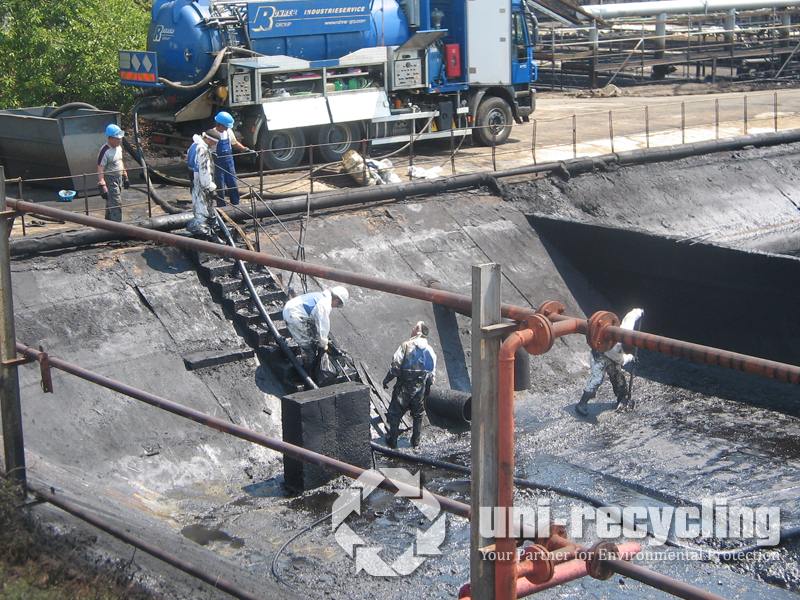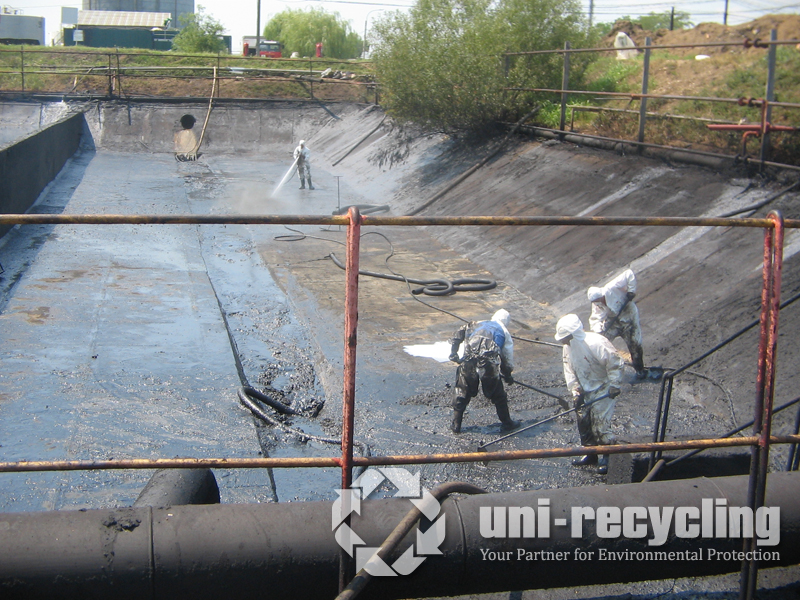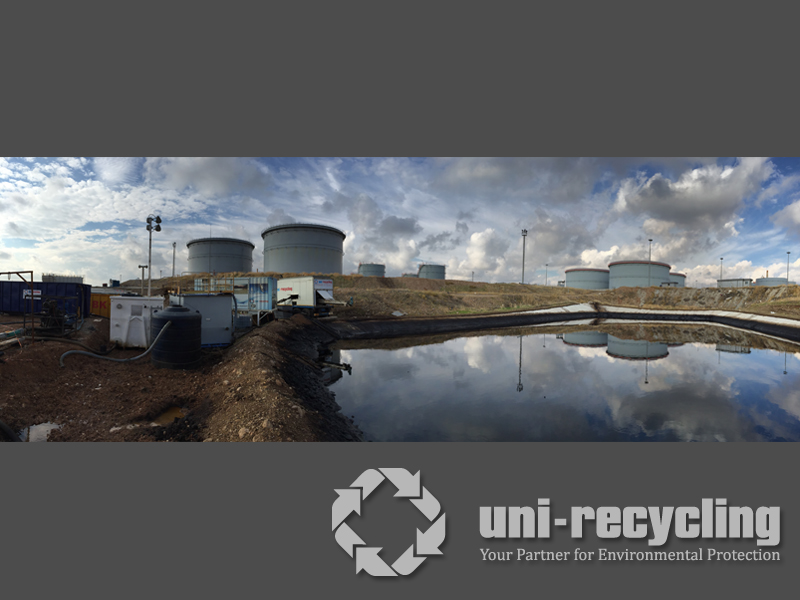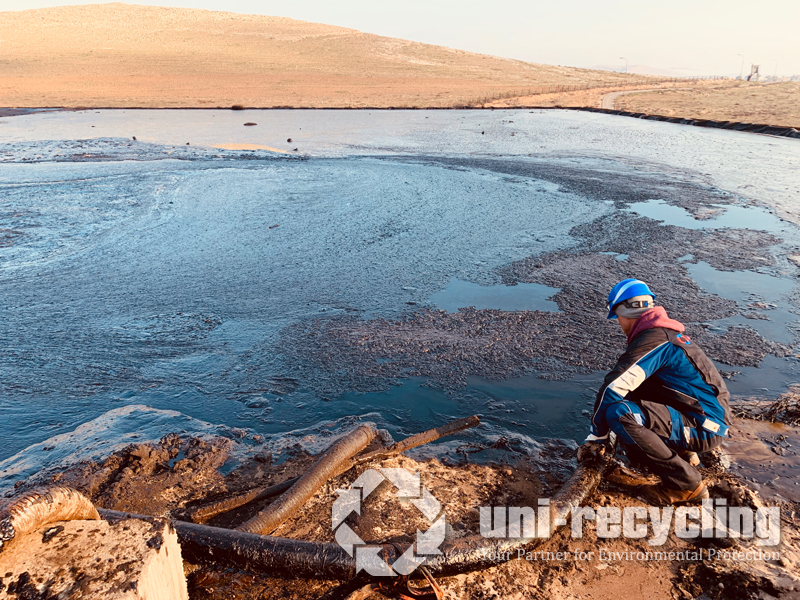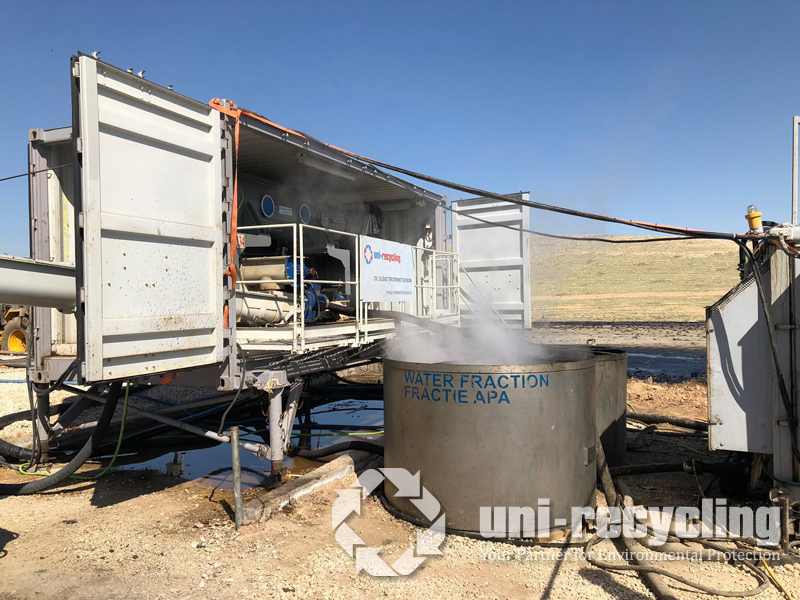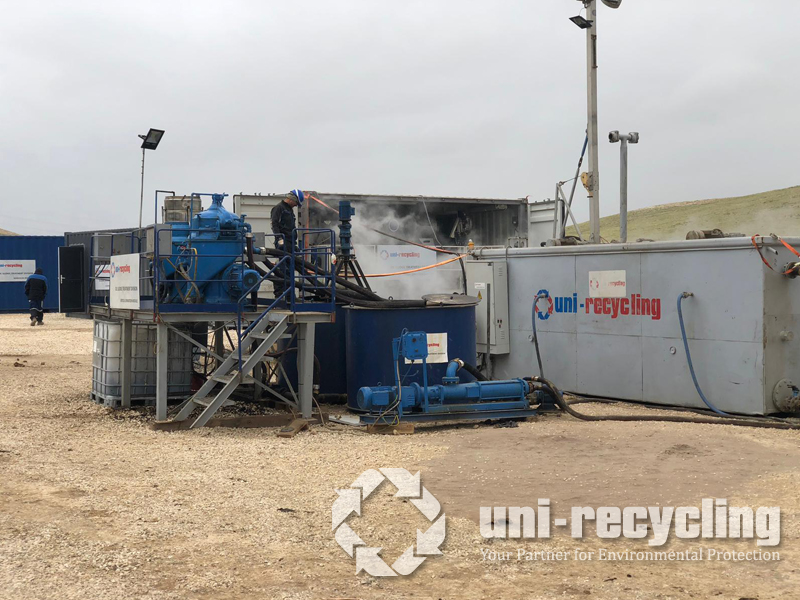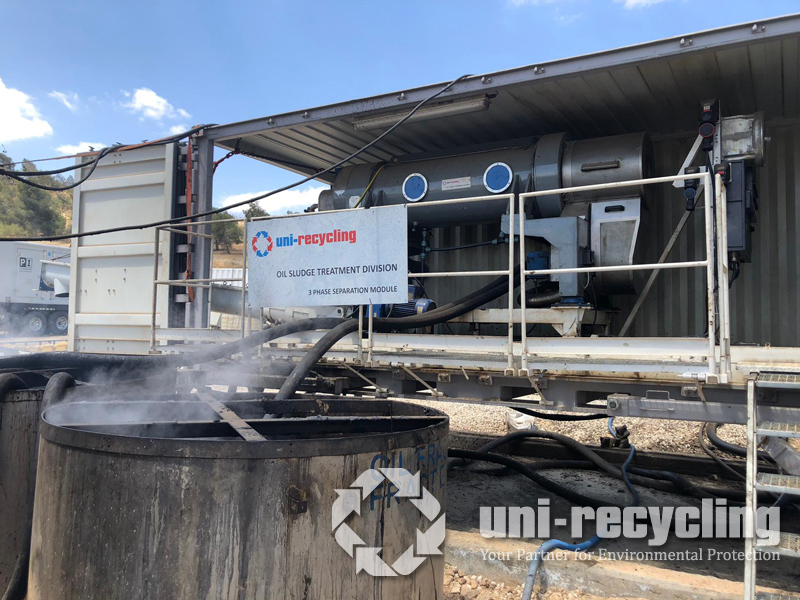In-house technologies for treatment of sludge
Uni-Recycling carries out turnkey projects including design, installation, operation and consulting with a record of over 1,000,000 m3 sludge in accordance with international standards. We are prepared for fast & efficient intervention in any location, using fully mobile equipment, on standard and non-standard pits & lagoons, carrying out the whole chain of operations for treatment of sludge from:
- Pits, lagoons, impoundments
- API separators
- Oily water discharges
- Tank cleaning sludges
Our in house technologies for treatment or disposal of sludge include:
- Dewatering
- Incineration
- Stabilization
Uni-Recycling provides:
- Fast and efficient intervention
- Efficient design and right choice of chemicals
- Mobilization to any remote location
- Highly trained and experienced team of specialists
- Entire cycle of operations within the project
- Mobile installations that can be relocated easily
In such projects MOBILITY IS THE KEY. By designing mobile installations, we ensure flexibility to reduce the costs and eliminate the requirement for sludge transportation. Additionally, by setting up on-site laboratories, we ensure highest recovery rates by adjusting chemicals dosing rates recipes.
Sludge characterization data is required to determine a suitable waste treatment process such as thickening, dewatering, or thermal treatment. The key properties are water, solids, and oil content, and whether the sludge can be pumped. Other properties such as pH and Total Organic Carbon (TOC) are also useful.
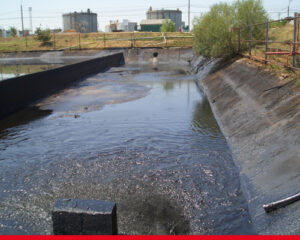
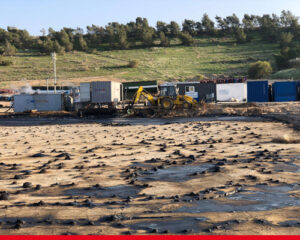
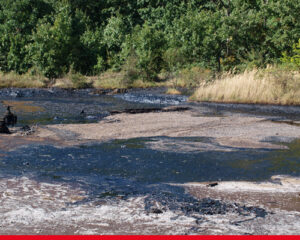
Dewatering
We use three-phase centrifuges to simultaneously thicken and dewater solids while recovering oil and water. The process of centrifugation is an acceleration of the process of gravitational separation by the application of centrifugal forces. Three-phase centrifugation results in highest oil recovery. Centrifuges have several advantages over other dewatering options. They occupy a small space for a large throughput, and unlike filters, they do not require a building if adequate cold weather protection is provided. Centrifuges are continuous devices, which can minimize the buffer capacity required and the system can be almost entirely closed reducing emissions. Also, the scroll centrifuge can produce a truly solid product, although the solids will typically contain more moisture than that those from a gravity belt filter press.
When the desired cake dryness and recovery rate may not be obtained solely by mechanical means, steam heating and/or chemical conditioning may be used. This requires a lot of experience. If economical, steam heating of the centrifuge will increase dryness. Polymer addition may also be used to increase sludge flocculation in order to get a thicker cake and reduce water in oil emulsions. Dosing rates and selection of the polymer is a very sensitive subject that is done in Uni-Recycling labs by our experts.
Depending on the conditions, Uni-Recycling can provide three-phase centrifugation installations including three-phase centrifuges, vertical separators, heating media, ionizers, chemicals, supported by specialized technicians on board.
After three-phase separation of oily sludge, recovered oil phase will be delivered to the beneficiary adding value to their business, recovered water phase will go to a wastewater treatment plant, and solids can be shipped to cement kilns, incinerators, or secure landfarms/landfills for final disposal, depending on circumstance and client’s preference.
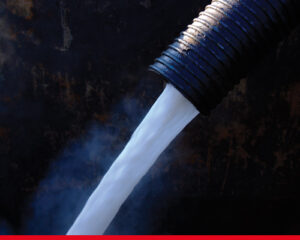
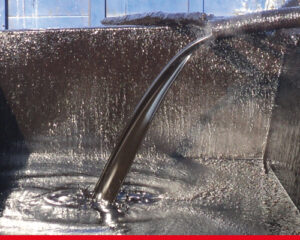
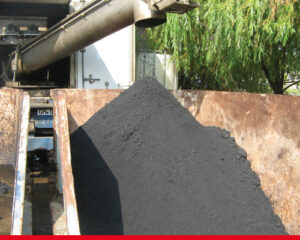
Gravity Belt Filter Press (GBFP) results in little oil recovery when oily sludges are dewatered, but it has a good solids dryness. All belt press filtration processes operate with three basic stages – chemical conditioning of the feed, drainage by gravity to a consistency that is not fluid, and dewatering of the drained sludge by compression.
Thermal dryers remove moisture and hydrocarbons from waste streams by heat transfer and evaporation, but not by combustion. Wastes such as dewatered sludges from wastewater treatment plants, slop oil emulsion solids, tank bottoms, and contaminated soils can be treated to increase heating value, reduce volume, or remove specific constituents. Dryers are highly energy intensive and their choice depend on many factors that require specialty.
Incineration
Incineration is a controlled combustion process for burning solid, liquid, or gaseous combustible wastes to an inert ash. In some cases, incineration is used for disposal of oily sludges and spent caustic in refineries and chemical plants.
Uni-Recycling provides many incinerators solutions which can be used for solid and semisolid wastes.
Stabilization
The addition of stabilizing agents will dewater sludge while destroying biological growth and odors. Since the reaction is exothermic, the water is both chemically combined and physically evaporated from the sludge. This method can be used for a variety of sludges.
For more details on Uni-Recycling stabilization solutions, please visit REHABILITATION OF CONTAMINATED SITES.



